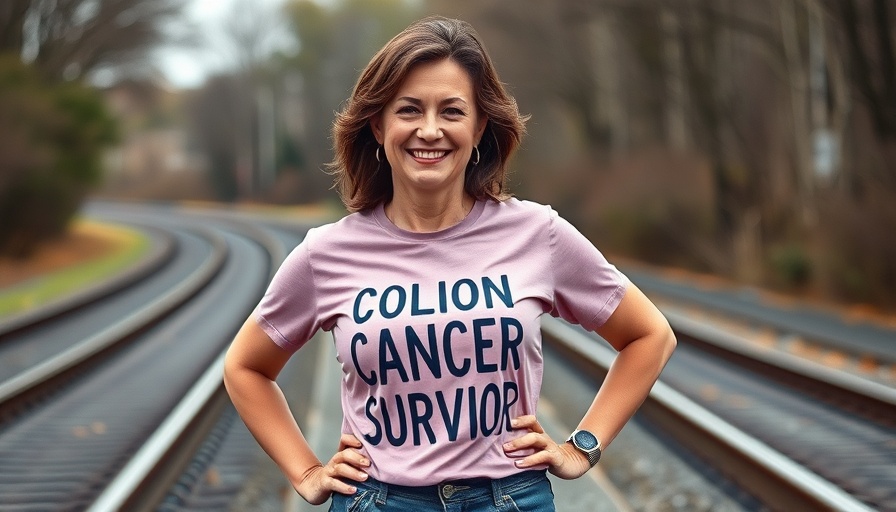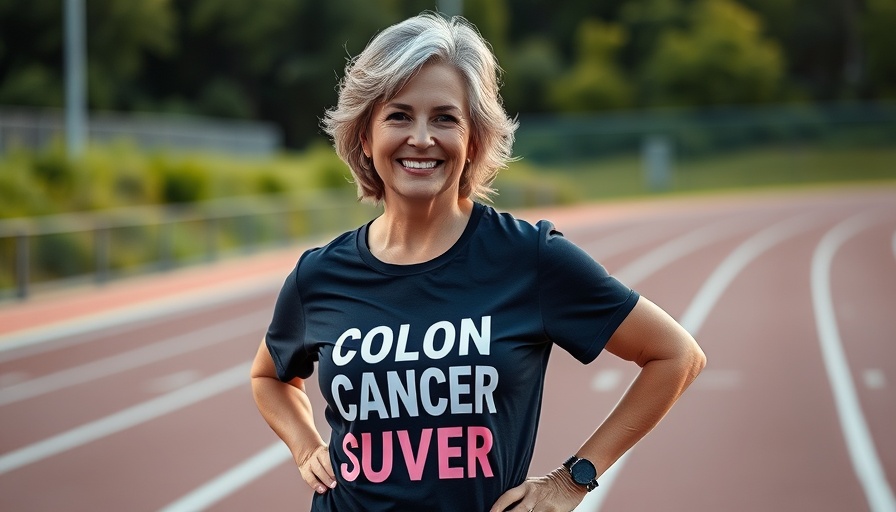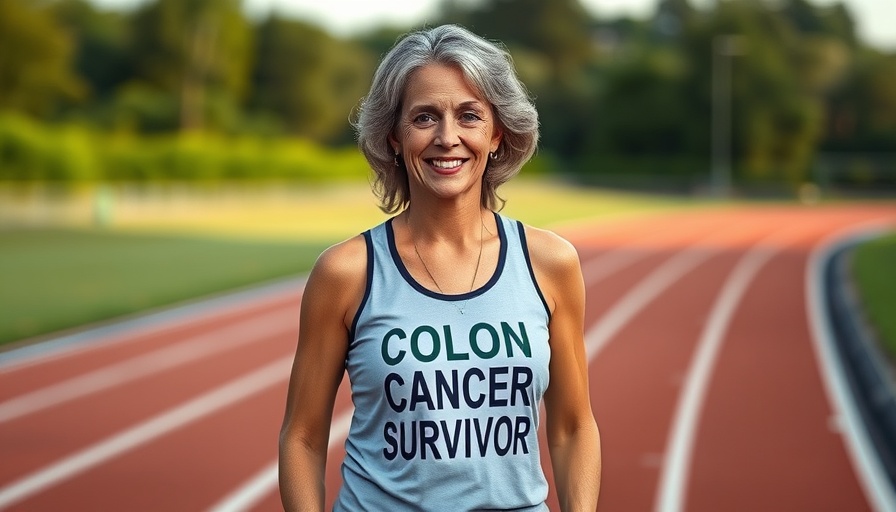
Misdiagnosis: A Dangerous Reality
For years, many individuals suffering from gastrointestinal issues are often dismissed with a simple IBS (Irritable Bowel Syndrome) diagnosis. This was the case for Jane Doe, a personal trainer who believed her chronic stomach pain resulted from stress or simple dietary choices. After enduring years of discomfort and unfortunate side effects, she learned a harrowing truth: her symptoms were not just IBS and hemorrhoids but were instead early indications of colon cancer.
Understanding Colorectal Cancer Risks
Colon cancer is often considered an 'invisible illness' until it reaches advanced stages. According to the American Cancer Society, colorectal cancer is the third most diagnosed cancer in the United States, affecting both men and women, particularly those over the age of 45. The myth that colorectal cancer only affects the older population can lead to a lack of awareness, causing people to dismiss their symptoms. Jane's story highlights the importance of being vigilant and proactive with one's health, especially concerning gastrointestinal distress.
Health Disparities and Missed Opportunities
Healthcare professionals often do not fully understand the varied manifestations of colorectal diseases. Jane's experience is a reminder of the biases medical professionals may have toward younger patients presenting with certain symptoms. Misdiagnosis can result in delayed treatment, impacting the prognosis significantly.
The Importance of Seeking Multiple Opinions
One key takeaway from Jane's experience is the importance of advocating for oneself. Patients should seek second opinions, especially when symptoms persist despite treatment. Documenting symptoms meticulously can assist in creating a strong case for a thorough examination, which may save lives. Jane's eventual diagnosis came not from a single visit but from persistent inquiries and advocating for a colonoscopy based on her symptoms.
Lessons For Everyone: Health Preparations
As Jane’s story continues to unfold, it serves not only as a clarion call for awareness around symptoms that could signify more serious issues but also an opportunity for education. Experts recommend that individuals over the age of 45 undergo routine screenings, especially those with a family history of colorectal cancer. Today, there are numerous governmental and non-profit resources that can provide critical support and guidance to those facing the fear of potential diagnosis.
Promoting Health Education and Awareness
Health education plays a crucial role in the prevention of colon cancer. Community programs are increasingly available to educate individuals about the signs and symptoms of colorectal disease. Simultaneously, investing in technology that improves diagnostic accuracy can enhance early detection and save lives.
Future Trends in Colon Cancer Awareness
As society becomes more health-conscious, a growing emphasis on preventive care is expected to combat diseases like colorectal cancer effectively. In the coming years, trends indicate that more healthcare providers will focus on early screening initiatives and patient education campaigns, particularly within the often-overlooked demographic of younger patients. Additionally, biotechnology innovations may soon provide groundbreaking ways to identify risks earlier.
Final Thoughts: The Importance of Awareness
Jane's journey, though fraught with difficulty, is a vital reminder about the significance of health advocacy. By sharing her story, we can inspire others to trust their instincts and push for the answers they deserve. Health is not merely the absence of illness; it's about understanding one's body and seeking appropriate care.
Stay vigilant about your health and ensure open lines of communication with medical professionals. Misdiagnoses occur, but awareness and education can empower individuals to take charge of their health.
 Add Row
Add Row  Add
Add 




 Add Row
Add Row  Add
Add 

Write A Comment